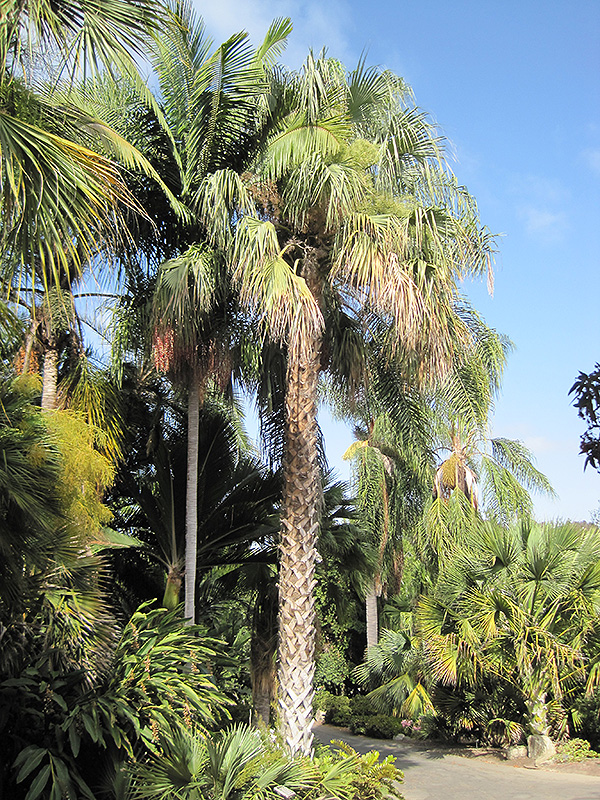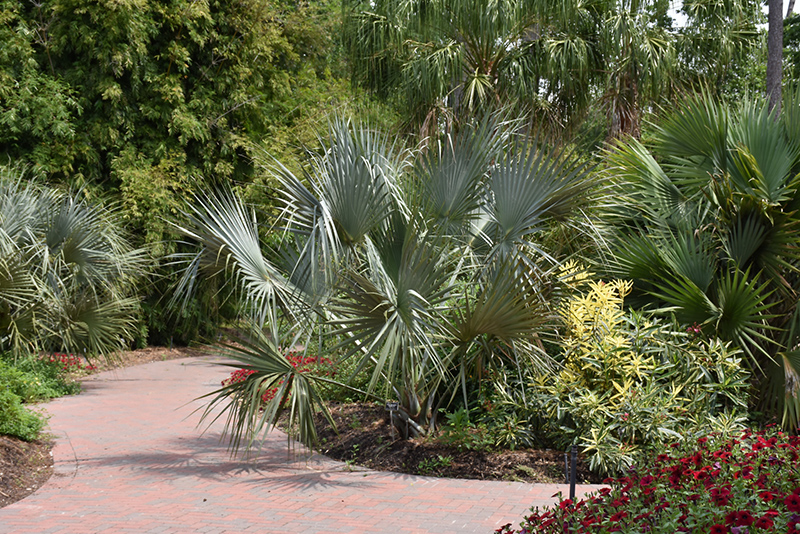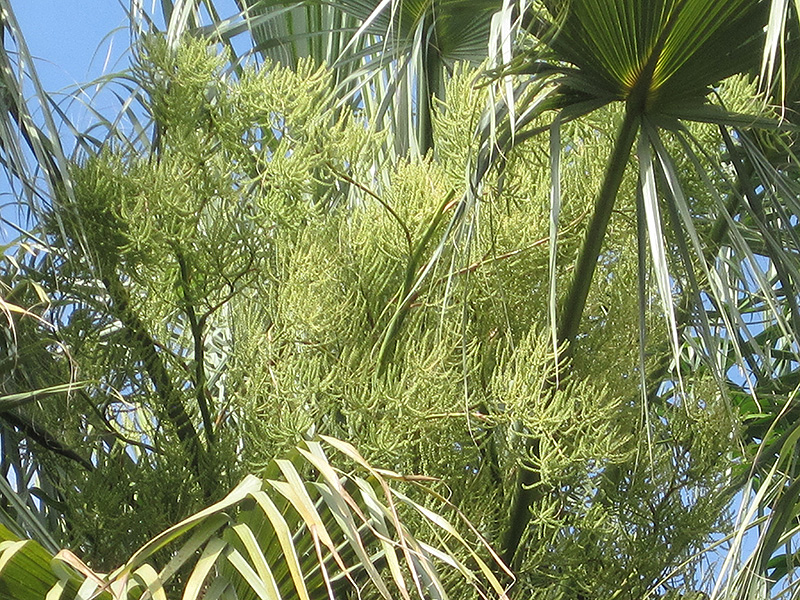Plant Finder
Height: 30 feet
Spread: 15 feet
Sunlight:
![]()
![]()
Hardiness Zone: 8a
Other Names: Sonoran Palm
Description:
This stately and robust palm makes a perfect landscape accent; tolerates drought and adapts to a wide variety of soils; quite resistant to cold spells as well
Ornamental Features
Sonoran Palmetto features showy panicles of creamy white flowers held atop the branches from mid to late summer. It has attractive silvery blue foliage with hints of grayish green. The lobed palmate leaves are highly ornamental and remain silvery blue throughout the winter. The fruits are showy black drupes displayed in mid fall.
Landscape Attributes
Sonoran Palmetto is an evergreen tree with a strong central leader and a towering form, with a high canopy of foliage concentrated at the top of the plant. Its average texture blends into the landscape, but can be balanced by one or two finer or coarser trees or shrubs for an effective composition.
This is a relatively low maintenance tree, and is best pruned in late winter once the threat of extreme cold has passed. It is a good choice for attracting birds and bees to your yard. It has no significant negative characteristics.
Sonoran Palmetto is recommended for the following landscape applications;
- Accent
- Hedges/Screening
- General Garden Use
- Naturalizing And Woodland Gardens
Planting & Growing
Sonoran Palmetto will grow to be about 30 feet tall at maturity, with a spread of 15 feet. It has a high canopy of foliage that sits well above the ground, and should not be planted underneath power lines. As it matures, the lower branches of this tree can be strategically removed to create a high enough canopy to support unobstructed human traffic underneath. It grows at a slow rate, and under ideal conditions can be expected to live for 80 years or more.
This tree does best in full sun to partial shade. It is very adaptable to both dry and moist locations, and should do just fine under average home landscape conditions. It is considered to be drought-tolerant, and thus makes an ideal choice for xeriscaping or the moisture-conserving landscape. It is not particular as to soil type or pH. It is highly tolerant of urban pollution and will even thrive in inner city environments. This species is not originally from North America.






